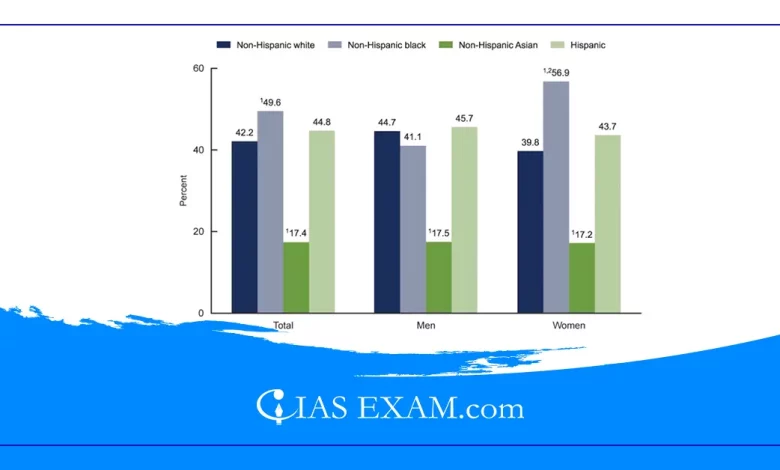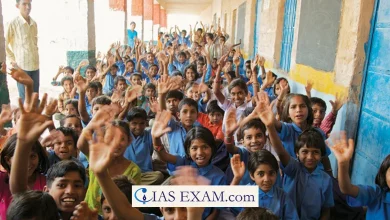
Context
As per a new global analysis, published by the journal The Lancet, obesity rates are increasing across the world.
About Obesity
- Obesity, as described by the World Health Organisation (WHO), is an abnormal or immoderate accumulation of fats that poses health risks.
- A body mass index (BMI) over 25 is considered obese and over 30 is obese.
- The BMI is a ratio of someone’s weight to their height measured in kilograms per meter square of height.
- Obesity has emerged as the most common form of malnutrition in most countries.
Global Scenario
- The overall number of youth, children, and adults worldwide living with obesity has passed one billion.
- In total, 159 million children and young people, and 879 million adults were obese in 2022.
Indian Scenario
- The obesity rate multiplied from 0.1% in 1990 to 3.1% in 2022 for girls, and 0.1% to 3.9%, for boys.
- In the prevalence of obesity class for women and boys, India ranked 174th in the world in 2022.
- According to the National Family Health Survey (NFHS-five), 2019-2021, approximately 6.4 percent of women and 4.0 percent of men aged 15-49 are overweight.
Causes of weight issues
- Poor Diet: Consuming high-calorie, low-nutrient meals consisting of speedy meals, sugary drinks, and processed snacks can contribute to weight gain. Diets high in refined carbohydrates and fats can cause overeating and weight gain.
- Lack of Physical Activity: Sedentary lifestyle, characterised by means of little to no bodily hobby, can make a contribution to obesity.
- Medications: Certain medicinal drugs, which includes antidepressants, antipsychotics, corticosteroids, and some medicines used to deal with epilepsy and diabetes, can cause weight gain as a side impact.
- Sleep: Poor sleep styles or sleep issues like sleep apnea can disrupt hormonal stability and growth urge for food, leading to weight gain.
- Genetics: Genetics play a role in determining an individual’s susceptibility to weight issues. Some humans may have a genetic predisposition that makes them much more likely to gain weight.
Way Ahead
- Addressing weight issues in youth requires a multi-faceted technique that entails government coverage, community tasks and individual moves.
- Restriction on sale of bad foods and beverages to children, limiting junk meals commercials targeted at youth, clear nutritional labeling and promoting more healthy options at college cafeterias are needed.
- Parents must also encourage youth in each day household chores and outdoor sports to promote physical activity.
Source: WHO
UPSC Mains Practice Question
Q.India suffers from the issue of both obesity and undernutrition. Critically examine the initiatives taken by India in resolving this issue. (250 words)





.png)



